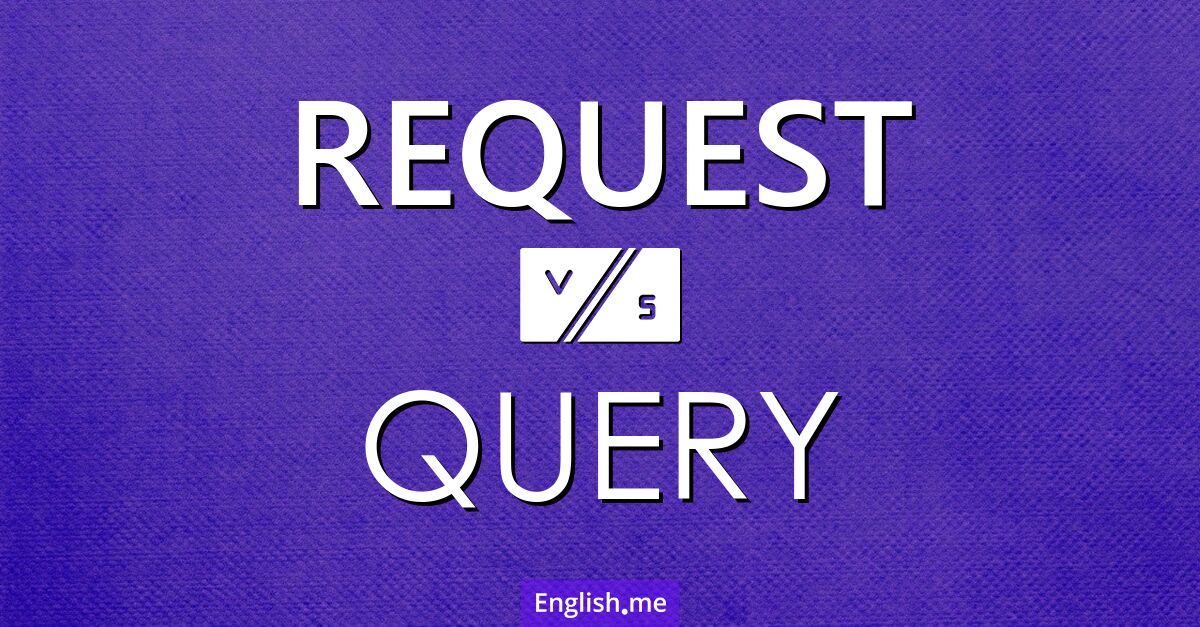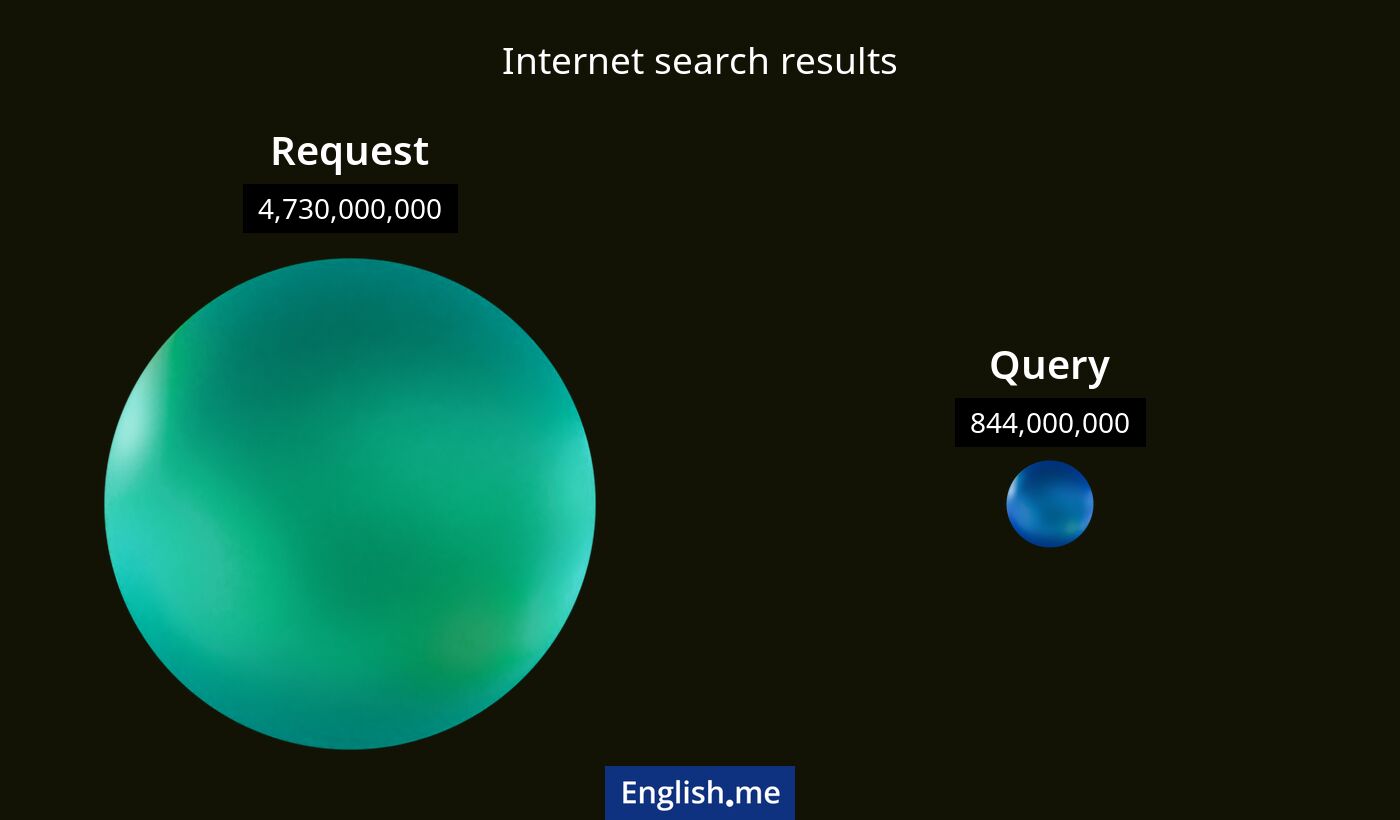"Request" vs "query": what's the difference?
Reviewed and edited by  Anwar Kareem 04/01/2025, 13:04
Anwar Kareem 04/01/2025, 13:04
English.me team member

 What is similar?
What is similar?
Both "request" and "query" involve the act of asking for something and are used in formal or professional contexts. They both represent a proactive effort to obtain information, assistance, or a response from another party.
 What is different?
What is different?
"Request" is typically used when asking for something to be given or done, such as a service, favor, or object. It implies a desire to receive or obtain a tangible item or action. "Query" is used when asking for information or clarification, often in the form of a question. It can also express doubt or seek to challenge the validity of something.
 Which one is more common?
Which one is more common?

 Examples of usage
Examples of usage
Request- She submitted a request for additional funding.
- They requested an extension on the project deadline.
- The employee requested time off for vacation.
- He had a query regarding the new policy.
- The scientist queried the results of the experiment.
- Customers can query their account balance online.

 English
English español
español française
française italiano
italiano deutsche
deutsche 日本語
日本語 polski
polski česky
česky svenska
svenska Türkçe
Türkçe Nederlands
Nederlands